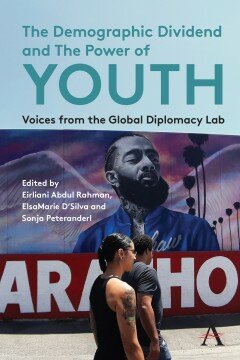The Demographic Dividend and the Power of Youth
Voices from the Global Diplomacy Lab
The 2019 curriculum of the Global Diplomacy Lab focused on the demographic dividend in Ghana and the African continent.
The demographic dividend is the name given by Harvard economists David Bloom and David Canning to the boost in economic growth that can result from changes in a country’s population age structure. As fertility rates decrease, a country’s working-age population grows larger relative to the young dependent population. With more people in the labor force and fewer children to support, a country has a window of opportunity for rapid economic growth if the right social and economic investments and policies are made in health, education, governance, and the economy. Conversely, research shows that resource requirements to support a large population of children and youth can depress the pace of economic growth and prevent needed investments in human capital. The discourse on responding to this population growth frequently excludes the youth. The result can be an apathetic community of young people who withdraw from participation in political and democratic processes.
Edited by community members Elsa Marie D'Silva, Eirliani Abdul Rahman and Sonja Peteranderl a compendium following up on the findings of the 2019 curriculum was published by Anthem Press in early 2021.
While the Global Diplomacy Lab 2019 focused on the African continent, young people worldwide are crucial to fostering positive social, political, cultural, and economic change. That is why in their essays, the authors reflect on the role of youth in their national and regional settings. Going beyond the African continent, they cast a spotlight on good practices of how governments and institutions can effectively manage and tap the demographic dividend for the success of all and highlight the role young people can play as actors of change.

photo: Sonja Peteranderl, cover: Julie August
"In reviewing this book, I found the author’s use of unconventional case studies with illustrations to convey stories quite interesting. It brings even a layman to the understanding of the importance of youth in relation to the demographic dividend and what can be done to harness it to the benefit of nations and the world at large before it is too late."
Elizabeth Adekunle, Executive Director, African Women and Youth Organization
Table of Content
Lynn Hounmdi: Reaping Morocco's Demographic Dividend - Lessons from Sub-Saharan Africa
Julia Jaroschewski: Social Media as a Weapon - How the Youth in Rio de Janeiro’s Favelas Fight Police Violence
Omar Jagne Kebba: Mobilising Human Capital to Harness the Demographic Dividend - The Role of the Diaspora as Actors of Change in the Gambia
ElsaMarie D’Silva: Engaging Youth to Address Sexual Violence in India
Ekua Yankah: Putting the African Girl at the Centre of Demographic Change Programmes
Sonja Peteranderl: From Incarceration to Transformation - Ex-Gang Members as Actors of Change in Los Angeles
Patrick Mpedzisi and Annegret Warth: African Continental Youth Policy as a Tool for Harnessing the Demographic Dividend
Rudrani Dasgupta: Digital Mindfulness for Indian Millennials
Elizabeth Maloba and Stefan Cibian: Lessons from Africa - What Can a Community of Pastoralists Offer the International Cooperation Community?
Colette Mazzucelli, Christian Rossi and Viola Prisca Roggia: Revisiting Democracy - Intersectionality, Youth and the Imperative of ‘Climate Justice’ – Sardinia’s ‘Europe Day’
The virtual book launch took place on 29th January 2021.
You can order the book here.
"This compilation is of enormous value to researchers, scholars and university libraries. The essays explore topics in an innovative and creative manner. The authors know their subjects and explore them with commitment, often producing exquisitely expressed documentation."
Melanie Cheary, strategic communications developer for humanitarian programmes
